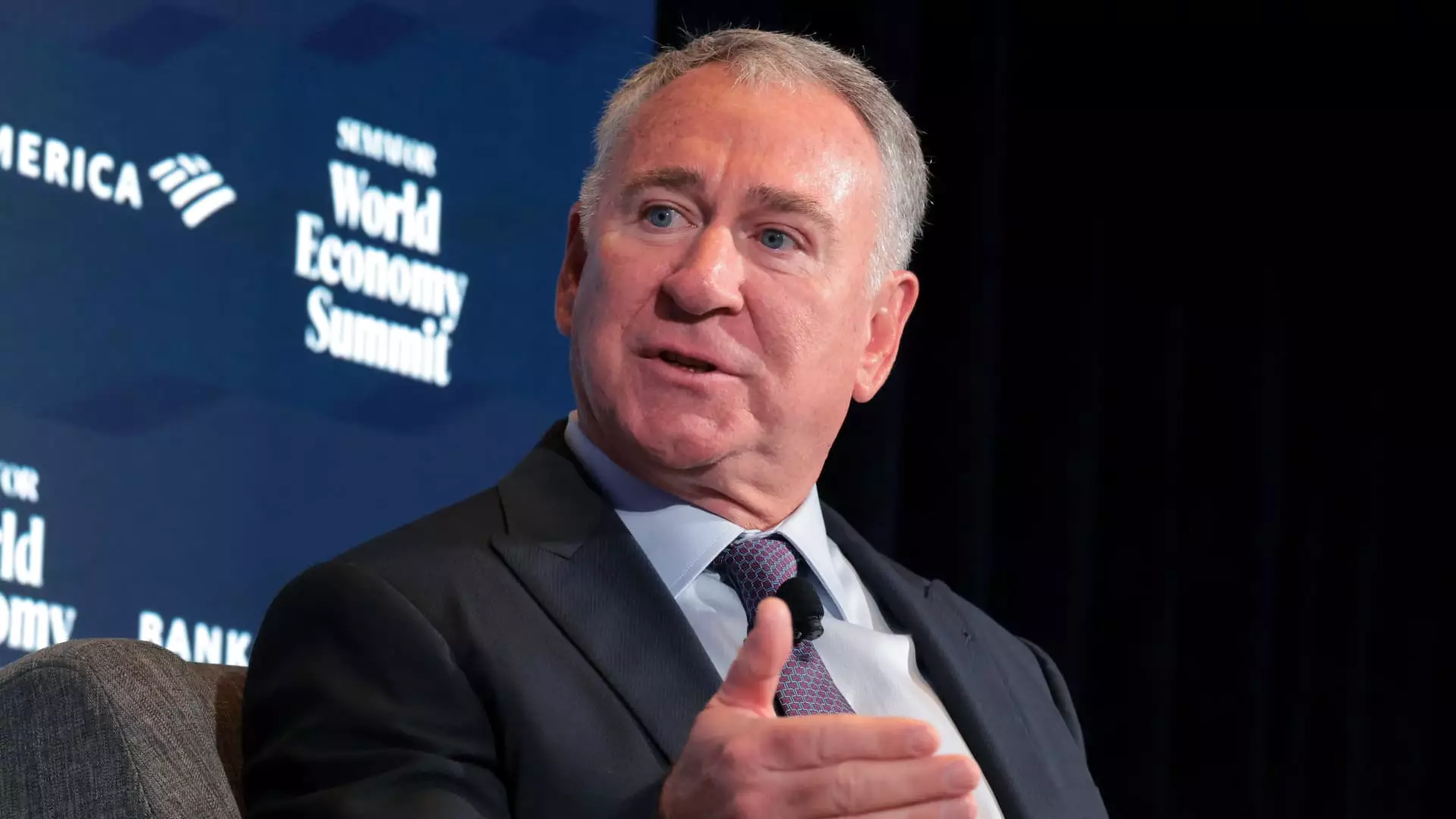Ken Griffin, the respected CEO and founder of Citadel, has sounded the alarm about President Trump’s trade policies, calling them a direct threat to the United States’ standing as a global leader and a revered brand. The notion that America represents more than just a geopolitical entity underscores a critical reality: for decades, the U.S. has stood as an emblem of aspiration, strength, and opportunity. However, Trump’s aggressive tariffs and combative rhetoric risk dismantling this brand equity. The impact of this self-inflicted damage is not merely theoretical; it manifests in tangible economic variables.
Global Perception: A Shrinking Aura
Griffin’s concerns highlight a harsh truth: America’s “universal brand” is increasingly being perceived as tarnished. His assertion that the U.S. is now viewed through a lens of skepticism, especially in the financial markets, speaks volumes. The unforeseen tariff hikes on imports were not only a shocking policy shift but also a significant jolt to Wall Street, provoking volatility that sent investors scrambling for safer options elsewhere. The once-untouchable U.S. Treasury market, a stalwart beacon of reliability, has started to lose its luster. What once stood as the safest bet for investors is now facing challenges that threaten to reshape its long-held reputation.
Market Reactions: A Sign of Lost Confidence
It’s not just Griffin’s words that should raise eyebrows; the market’s immediate response to Trump’s trade maneuvers offers concrete evidence of faltering confidence. Rising Treasury yields coupled with a weakening dollar illustrate a broader unease among investors—an unmistakable sign that the gravitational pull of the U.S. financial system is waning. By underscoring that “no brand compared to the brand of the U.S. Treasury market,” Griffin brings urgency to the issue. The implications of undermining this brand are staggering; they can reverberate through the global economy, impacting everything from trade negotiations to local job markets.
Leadership and Responsibility: A Call for Thoughtfulness
Griffin doesn’t shy away from placing the responsibility squarely on the shoulders of the President and his economic advisors. He advocates for a conscious effort to preserve and enhance the American brand, emphasizing that once damaged, it takes generations to restore. This crucial perspective must resonate not just with political leaders, but also with the electorate. In a time where boldness is often celebrated, it is essential to recognize that there is a fine line between assertive leadership and reckless bravado. Griffin’s call for a thoughtful approach to trade policy is not just a financial plea; it is an appeal for a return to the values that once made America great in the eyes of the world.
In these turbulent times, the need for responsible and strategic leadership has never been more pressing. The implications of Trump’s trade policies extend beyond mere economics; they reach the very core of what America represents worldwide. The stakes are high, and the potential for lasting repercussions is evident. As citizens and investors alike look for assurance of America’s enduring appeal, it raises a pivotal question: Can we afford to continuously gamble with what is—in essence—the American legacy?

